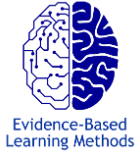 Psychology is like a giant puzzle with a ton of pieces. It can be tricky to put it all together! But don’t worry, there are some super cool ways to make it easier. This article is like a secret cheat sheet for your brain. It’ll show you how to learn all those crazy psychology terms and ideas without losing your mind. Get ready to become a psychology pro via Effective Study Techniques For Psychology!
Psychology is like a giant puzzle with a ton of pieces. It can be tricky to put it all together! But don’t worry, there are some super cool ways to make it easier. This article is like a secret cheat sheet for your brain. It’ll show you how to learn all those crazy psychology terms and ideas without losing your mind. Get ready to become a psychology pro via Effective Study Techniques For Psychology!
-
Active Learning
Just reading or listening to stuff isn’t the best way to learn. It’s like like finding a needle in a haystack! Teach it to a friend, draw a picture of it, or talk it through with someone. Your brain is a really neat muscle, exercise it as much as you can cause the stronger it gets!
-
Spaced Repetition
This method exploits the psychological spacing effect, that is information can be retained if learned and revised over a large period rather than cramming in a short timeframe. One method to help manage this is with flashcards or spaced repetition software to make sure you review them regularly.
-
Interleaving Practice
Studying more than one topic a day, instead of focusing on one for a long time helps you differentiate between commonly mixed-up topics. For students in psychology, this could entail switching from cognitive to developmental and social psychology. This way we help them to develop a better understanding of the properties and flexibility with which concepts can be applied in varying contexts.
-
Active Note-Taking
Taking awesome notes is the secret weapon! Instead of copying everything your teacher says, focus on the main ideas and examples. Think of it like capturing the coolest parts of a movie – the plot twists, funny jokes, and exciting endings! A super cool way to organize your notes is by using the Cornell Note-Taking System.
-
How are Theories Applied in Real-Life Situations?
Learning about psychology isn’t just about memorizing facts. It’s about understanding how our brains work in real life. When we can connect what we learn in psychology to our everyday experiences, it helps us remember the information better and think more critically. For example, learning about why we sometimes make bad decisions can help us avoid those mistakes in the future.
-
Regular Self-Assessment
Frequently taking quizzes, practice tests, and self-reflection to assess where you are for every learning objective is key in tracking progress and establishing what areas need more work. This method can act as a positive reinforcement and is one of the best practices that help students get ready for an exam by getting them used to the format, type of questions, etc.
To sum up, Effective Study Techniques For Psychology could include different approaches such as active learning and spaced repetition to application in real-life scenarios and appropriate good habits of studying. Students who utilize these tools can increase their comprehension, retention, and practical application of psychological knowledge, resulting in higher grades and a greater appreciation for the material.

No Comments
Leave Comment